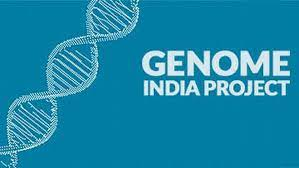Genome India Project
News: In accordance with the Genome India Project, the government plans to sequence 10,000 genomes by the end of 2023. (GIP).
Nearly 7,000 genomes have been sequenced by the Ministry of Science and Technology’s Department of Biotechnology, and 3,000 of these are already accessible to the general public.
The Human Genome Project (HGP), an international effort that successfully decoded the entire human genome between 1990 and 2003, served as the model for the Genome India Project, a scientific initiative.
With the goal of better understanding the genetic variants and disease-causing mutations unique to the genetically varied Indian population, the project was launched in 2020.
Researchers seek to learn more about the underlying genetic causes of diseases and provide more efficient, customised treatments by sequencing and analysing these genomes.
Twenty institutions from all around India are working together on the initiative, which is being directed by the Centre for Brain Research at the Indian Institute of Science in Bangalore.
In order to prevent and manage diseases, GIP seeks to produce personalised medication based on patient genomes.
By linking genetic variants to illness propensities, therapies can be more precisely targeted and diseases can be diagnosed before they manifest.
If there is a greater understanding of the genetic basis of plant vulnerability to pests, insects, and other problems reducing productivity, agriculture will reap similar advantages.
This may lessen a person’s reliance on chemicals.
A mapping endeavour in one of the gene pools with the greatest degree of diversity will also be advantageous to global research.
Because of its scope and the diversity it would add to genetic research, the project is considered to be among the most significant of its kind in the world.




